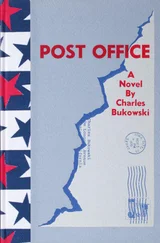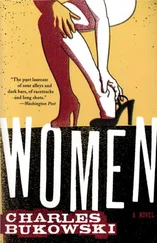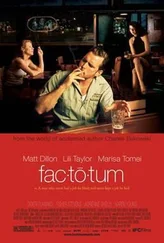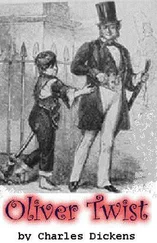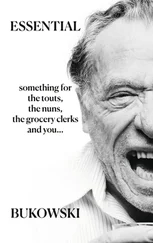Alice half-expected a lollipop. Her own fault. “You are kind,” she said.
Then the vancomycin she’d been given for that nasty blister and skin infection following her IV infiltration. The catheter-port contraption that had required minor surgery to install in her jugular, so they could run the IVs. The heparin drip into the catheter-port thing for the blood clot in the infiltrated arm. The transition from heparin drip to Lovenox pills, which had changed to Coumadin shots, after it turned out her insurance would not cover the Lovenox. Plus her platelet transfusions. And how long it had been since she last had a fever, her ordeal distilled into a connect-the-dots trail of pharmaceuticals and procedures. As if she were speaking about the intricacies and design specs of a blouse collar that she had been struggling with, Alice was as specific as possible about how many minutes after eating two spoonfuls of wheat flakes with sliced bananas she’d felt the cramping along the side of her stomach. She pointed to the right side of her abdomen, explained the shifting, cramps becoming something else, a rush both sudden and desperate, the consistency of her stool becoming watery.
Howard Eisenstatt and the nurse-practitioner shared a look. Eisenstatt speed-read a note from off her chart reporting that, after her induction chemo, traces of a stomach virus had been present in cultures taken from high inside her nose and deep in her throat. “Normally the virus goes away with time and antibiotics,” he said. “I imagine that’s been the case here.” He ordered the nurse-practitioner to take more cultures. “If the virus has reappeared,” Eisenstatt continued, “we need to make sure it just stayed in your stomach. I don’t want you to worry. If it comes to that, we have a drug that eliminates the bug. You can take it through an IV.”
“Even if the bug did get in your bloodstream,” Dr. Bhakti said, stepping up. “There’s an experimental form of the drug that’s been testing to encouraging results.” She crinkled her nose. “Only one potential problem. A number of patients have had some side effects.” Realizing what she was saying, “The, ah, most problematic…being”—her voice slowed—“well…diarrhea.” She waited. Then, for emphasis, added, “Dangerously explosive diarrhea.”
Oliver snorted, looked at her as if she was crazy. “You’re going to cure my wife’s diarrhea with a drug that causes dangerously explosive diarrhea? If it comes to that? ”
Almost as a reflex, he checked with Alice, meeting her eyes, anticipating unhappiness with his flippancy.
“We’re not letting them do that to you,” he said.
She emanated gratefulness, relief.
“We’ll try with what we have,” Eisenstatt answered, “if it comes to that.” The doctor leveled a gaze at Bhakti, his irritation obvious. “And you’re still taking the Coumadin shots every day?”
“Mmm. Oliver — my husband — gives them to me.”
“Cancer in your family history?”
Alice’s hands joined and webbed; she flexed them in her lap, pursed her lips. “My father died from pancreatic cancer when I was eleven.” Be calm. Release. “And his mother as well — she was older by then, and two packs a day her whole life, a fiend. So I’m not sure how that affects the family tree, if you include…”
Closing her eyes, keeping them shut, she did a short breathing thing, unlocking her hands, putting them back on her knees, feeling the pointed jags beneath the denim. “Doctor, this whole day, being back in this…it’s already — I feel very…”
“Take your time.”
She held off her emotions. “I’m sorry. I’ll do better. Keep going.”
“There’s no solid reason why people get leukemia. I wish I had something more definitive to tell you.”
“What about heredity?” She jerked forward. “It’s not genetic?”
“Very few cases of acute myeloid leukemia are passed down,” Eisenstatt said. “If I had to guess — and it would only be a guess — I’d say chances are rare.”
Alice grimaced, snorted, gasped for air, “She’s safe?” Her chin crumpled. “My baby’s going to be all right? She can’t get this?”
The nurse-practitioner was at her side with tissues. Alice blew her nose, became aware of a disturbance. Her daughter’s eyes, huge white saucers; Doe’s little face uncertain, turning flush, light orange, now a deep crimson. Infant features scrunched around the meeting point of her nose; her mouth widened. That juncture, intimately familiar to a parent, right before the screaming starts. Horrible as your child’s misery might be, when you’d been through it enough, the building process toward eruption could actually be endearing. Through her tears Alice made eye contact with an equally entertained Oliver. She motioned for him to bring over Doe.
The baby was inches from her mother’s bosom when the inevitable finally took place, those tonsorial sirens blaring, their noise resonant, inclusive, the royal and imperial we: We are all going to plummet to the depths of my unhappiness .
Alice bounced Doe, made placating noises, grimaced.
Next to her, Dr. Eisenstatt pinched the bridge of his nose with his right hand. Bereft of a wedding band, an adult single childless male doctor, with how many patients waiting for him, he looked as if he’d gotten a wedgie in his ears.
“It runs in the family,” Alice said. “We’re criers.”
She smiled at her girl, made more cuddly sounds. The nurse-practitioner came over and added a soft “It’s all right.”
Once Doe calmed, Alice began. “It’s why we started early. One of the reasons anyway. I knew the disease was part of my family history. When you’re a child, that absence defines you. You form around it, you know? Then, you get older, you don’t know how long you have. Every friend — everyone we know, is busy trying to establish themselves, get their professional life going. I have ambition, too, I’m not Miss Merry Homemaker.” She sniffed, motioned with her hand, an absent gesture. “I wanted to make sure I had the chance. To — to be a mommy. I wanted kids while I’m young and can care for them and chase them. I get colds, all the time, but nothing of consequence, my entire life I’ve been healthy. So I thought, Okay, honeysuckle —”
Her voice cracked. “And now, this.”
She stared at the rack next to the door, cardboard boxes of light blue plastic gloves, surgical masks, hand sanitizer. Reaching around, so her child was still wrapped in her arms, Alice used the sleeve of her thermal, wiped at her eyes. Oliver was poised, ready with a slender stick of cheese wrapped in plastic.
“As I said, we really don’t know why leukemia appears in most patients.” Eisenstatt’s face was pink with health and closely shaven, but also had a shadow, stubble coming in. “This says you don’t have any brothers and sisters?”
“Correct.” She lightly rocked Doe. “I’m an only child.”
A pager in the room was vibrating on someone’s belt loop. Someone was laughing and walking down the hall outside the door.
A doctorish thought formed across the doctor’s face. Eisenstatt digested whatever he was thinking. When he said, “Okay,” his tone was more authoritative, the okay acting as a switch. Oliver withdrew a spiral school notebook from their bag. The doctor blinked and swallowed, tics that Alice would come to recognize as indicators he was preparing to speak at length.
“You’re on top of your treatments, that’s impressive. It’ll be helpful down the road. If you have any questions, make sure to ask. If I’m telling you things you know, I apologize, but I’d rather we’re all on the same page.”
Medical personnel, doctors and nurses alike, talked in this clipped manner: short sentences, quick back-and-forth exchanges. It was the same way in the design world, or dealing with magazine people, anyone who seemed to straddle the lines between corporate and creative worlds. Time was at a premium. Unless someone was above you on the hierarchical ladder, you didn’t have a moment to spare, merely enough time to explain what you needed, or wanted, or had to get across — then you waited for the person to catch up, nod that they understood, or stare at you looking glazed. Once the supervisor left, it was up to whomever to sink or swim. In the medical realm, at least, in Alice’s experiences there — all of which encompassed her pregnancy and these six weeks of insanity — doctors pretended it mattered if the patient understood, before continuing to the next thing.
Читать дальше


